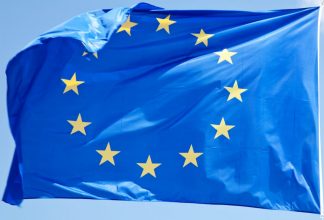Mujer a Mujer’s Message to the European Union
Letter #7 by Ministerio Mujer a Mujer.
In July 2019, Civil Rights Defenders invited Cuban human rights defenders and civil society organisations to contribute with texts on how the European Union should work towards Cuba. This letter comes from Ministerio Mujer a Mujer.
Mujer a Mujer’s Message to the European Union
Knowing that EUs desire for the wellbeing of the Cuban people, and understanding the circumstances that prevent our system from effectively providing spiritual and material solutions to the people, we, Mujer a Mujer, as an organisation and civil society member, view this space as an opportunity to bring solutions to the country’s pressing issues and problematics.
We thank this opportunity to express ourselves in a context of recognition and liberty, which promotes an expectation of hope for the collective work and cooperation between civil society in the European Union, its Member States, and Cuba. This can forge the common aspiration of a better, more democratic, inclusive and pluralist Cuba, and we appreciate it as a starting point, where listening and implementation will mark a before and after in our nation. Being heard at international organisations would be a process of social catharsis and a divine opportunity for civil society. To express oneself and be heard would be a healing process, and would improve relations among the powers.
Civil society has a community base, so it has access, prominence, and up-to-date information. Participation of civil society would allow the government to focus on the macro side, while solutions could emerge from civil society and become quickly viable.
In regard to the political dialogue, we understand it as:
- More democratisation
- Consensus of dialogue among actors
- Access to different ways of thinking
Dialogue is an effective mechanism that would let us implement agreements and incorporate all civil society with more representation.
Calling for a dialogue among actors would mean respect for diverse points of view, listening to different sectors, and active participation. All off this, outside a politized framework, in an atmosphere of harmony and support of change.
Concrete steps:
- We acknowledge the need to cooperate in order to achieve this scenario.
- Promote, recognise and highlight different sectors of civil society.
- Forge Cuban civil society empowerment links.
In regard to political dialogue, it is necessary that agreements be reached in the framework of acknowledging civil society and its opinion as the expression of the people.
In regard to the question of how European Union institutions can cooperate with Cuban civil society, which openly promotes democracy and human rights, we specifically propose:
Create a state of protection for civil society members that promote democracy, emphasising in the respect of their rights. All of this in an atmosphere of protection against structural violence.
- Promote open spaces to show the European Union and its Member States how those spaces are developed while avoiding risk.
- Establishment of alliances between Cuban and European civil society via cooperation agreements on training, project development, and social strategy.
- Establish funds to help implement cooperation projects.
- Monitor assigned resources and evaluate its social impact.
- Extend the spectrum of Cuban civil society protagonism and the dissemination of its actions.
- Implement specific projects that impact the environmental, economic and social sectors, with ample civil society participation.
- Sign agreements with universities and provide accreditation for the training we receive. This increases its profile, but also offers accreditation to invalidate the concept of professional interference. Create scholarships for activists, for long-distance learning, with meetings overseas; the instruction would focus on the social sector. This goes beyond accreditation, it instructs, positions and legalises the activity of the activists in the national territory.
In regard to the question on what the European Union should focus on during the political and cooperation dialogues, and in the commercial sector with Cuba:
- The incidence of the European Union and Member States in the formation of civil society in Cuba, in the acquisition of a social culture that seeks democracy (School of Social Culture).
- Training of Cuban civil society via strategic alliances with civil society from the European Union.
- The insertion of Cuban civil society in European Union and member state forums to promote an understanding of Cuban reality from a non-politicised point of view.
- Establish cooperation to increase the participation of Cuban civil society in European community institutions, with the aspiration of implementing social and economic projects and actions that protect human rights.
In regard to cooperation and commerce, it is necessary to evaluate new forms of property and promote investment plans in the Cuban private sector. Implementation requires participation of Cuban civil society, as an expression of its potential in the forging of internal solutions.
In regard to the cooperation between the European Union and organisations linked to the Cuban government and Communist Party, we consider that those organisations are not able to resolve problems; that is why we propose using civil society to enrich and resolve social problems outside of politics.
The dynamic of societies imposes changes, and nations require their governments to make those changes dynamic.
To avoid the participation of civil society when seeking solutions to problems in a country, and to have a one-dimensional and politicised view, limits the possibility of finding solutions and does not optimise social resources from a perspective of participation. Civil society could be vital in the management of solutions. For this reason, we have the will to cooperate, to have a dialogue, and to participate as part of a whole that represents the nation.
About Ministerio Mujer a Mujer
The Ministry Woman to Woman (Ministerio Mujer a Mujer) is a non-profit and non-governmental Cuban organisation, whose purpose is to help women overcome pain, lack of identity, and thus help women to be free. The initiative was born due to the increased cases of violence against women in Cuba. Its main objectives are the promotion of women’s rights, and their physical and psychological integrity. Their work focuses on human rights education, with the aim of positioning people on a justice platform and a new way of seeing life. The ministry is established in Cuba and in other Latin American countries.

